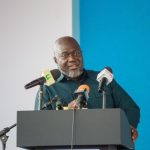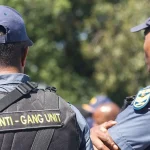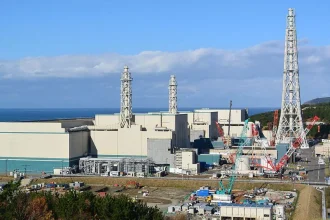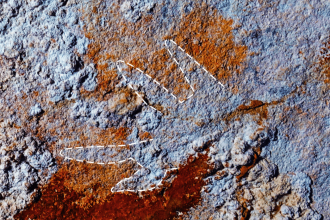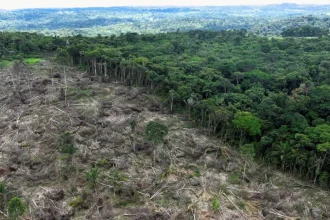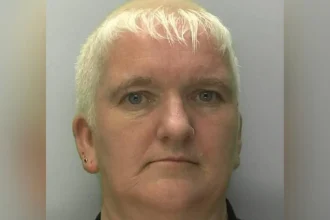A senior Hamas official has said that he expects Israel and Gaza militants to reach a ceasefire “within a day or two” as cross-border attacks continue.
But Israeli PM Benjamin Netanyahu said on Wednesday he was “determined to carry on” until “calm and security are restored to Israeli citizens”.
There were more than 100 Israeli airstrikes on Hamas infrastructure in the north of Gaza early on Thursday.
Palestinian militants retaliated with rocket fire at targets in Israel.
The Gaza fighting began after weeks of rising Israeli-Palestinian tension in occupied East Jerusalem that culminated in clashes at a holy site revered by both Muslims and Jews.
Hamas, which controls Gaza, began firing rockets after warning Israel to withdraw from the site, triggering retaliatory airstrikes.
At least 227 people, including more than 100 women and children, have been killed in Gaza so far, according to its health ministry. Israel has said at least 150 militants are among those killed in Gaza. Hamas does not give casualty figures for fighters.
In Israel 12 people, including two children, have been killed, its medical service says.
Israel says some 4,000 rockets have been fired towards its territory by militants in Gaza.
“I think that the ongoing efforts regarding the ceasefire will succeed,” the Hamas political official, Moussa Abu Marzouk, told Lebanon’s al-Mayadeen TV.
“I expect a ceasefire to be reached within a day or two, and the ceasefire will be on the basis of mutual agreement.”

The comments come as international pressure mounts on Israel and the Palestinian militants to end hostilities.
An Egyptian security source told the Reuters news agency that the two sides had agreed in principle to a ceasefire after assistance from mediators but negotiations were still taking place.
On Wednesday, President Biden held his fourth call with Mr Netanyahu since the conflict started.
A statement released by the White House said: “The president conveyed to the prime minister that he expected a significant de-escalation today on the path to a ceasefire.”
The latest bid for a UN Security Council resolution calling for a ceasefire, launched by France, failed on Wednesday when the US said it could “undermine efforts to de-escalate”.
What’s the latest on the ground?
The fighting has shown little sign of letting up overnight.
Israel launched a series of air strikes on Gaza in the early hours of Thursday, destroying two houses. Medics said four people were injured in an airstrike on the town of Khan Younis.
Israel said it had targeted “multi-barrel rocket launching sites and aerial defence compounds” belonging to Hamas.
Rocket sirens could be heard in the Israeli town of Beersheba and in areas near the Gaza border, as Gaza militants fired rockets. No casualties have been reported.
Timeline: How the violence escalated
The worst violence in years between Israel and the Palestinian territory of the Gaza Strip has seen dozens killed. It follows a month of spiralling tensions before open conflict broke out.
Here is what happened in the lead-up to the fighting.
Clashes erupt in East Jerusalem between Palestinians and Israeli police.
Palestinians are angry over barriers which had been placed outside the Damascus Gate entrance to the Jerusalem‘s Old City preventing them from gathering there after prayers at the Old City’s al-Aqsa Mosque on what is the first night of the Islamic holy month of Ramadan.
Palestinian discontent had been stoked earlier in the day when President Mahmoud Abbas called off planned elections, implicitly blaming Israel over voting arrangements for Palestinians in East Jerusalem.
Hamas – Mr Abbas’ Islamist rivals who control Gaza and were running in the elections – react angrily to the postponement.
Violence around Damascus Gate and elsewhere in East Jerusalem continues nightly.
Later on after Friday prayers – the last of Ramadan – major clashes erupt at the al-Aqsa mosque compound, injuring more than 200 people. Israel’s police force says it used “riot dispersal means”, firing rubber bullets and stun grenades after officers came under a hail of stones and bottles.
A second night of violence erupts in East Jerusalem after tens of thousands of worshippers prayed at the al-Aqsa mosque for Laylat al-Qadr, the holiest night of Ramadan.
Police and protesters clash at Damascus Gate, with police using water cannon, rubber bullets and tear gas against crowds of Palestinians, some throwing stones.
More than 120 Palestinians and some 17 police are injured.
Israel’s Supreme Court postpones the hearing on the Sheikh Jarrah case following calls to delay it because of the growing unrest. Tensions remain high though and more clashes take place between Israeli police and Palestinians in Sheikh Jarrah and at Damascus Gate.
Early morning clashes break out between police and Palestinians at the al-Aqsa mosque compound, where crowds throw stones and officers fire stun grenades.
Palestinian anger has been inflamed by an annual Jerusalem Day march planned for later in the day by hundreds of Israeli nationalists to celebrate Israel’s capture of East Jerusalem in 1967.
The march is due to pass through predominantly Arab parts of the Old City in what is seen by Palestinians as a deliberate provocation. It is rerouted at the 11th hour, but the atmosphere remains volatile with more than 300 Palestinians and some 21 police injured in the violence at the holy site.
Hamas issues an ultimatum to Israel to “withdraw its soldiers… from the blessed al-Aqsa mosque and Sheikh Jarrah” by 18:00. When the deadline passes without an Israeli response, rockets are fired towards Jerusalem for the first time in years.
Israeli Prime Minister Benjamin Netanyahu says the group has “crossed a red line” and Israel retaliates with air strikes, killing three Hamas fighters.
A continuing exchange of rocket-fire and air strikes quickly escalates into the fiercest hostilities between the two sides since they fought a war in 2014.








